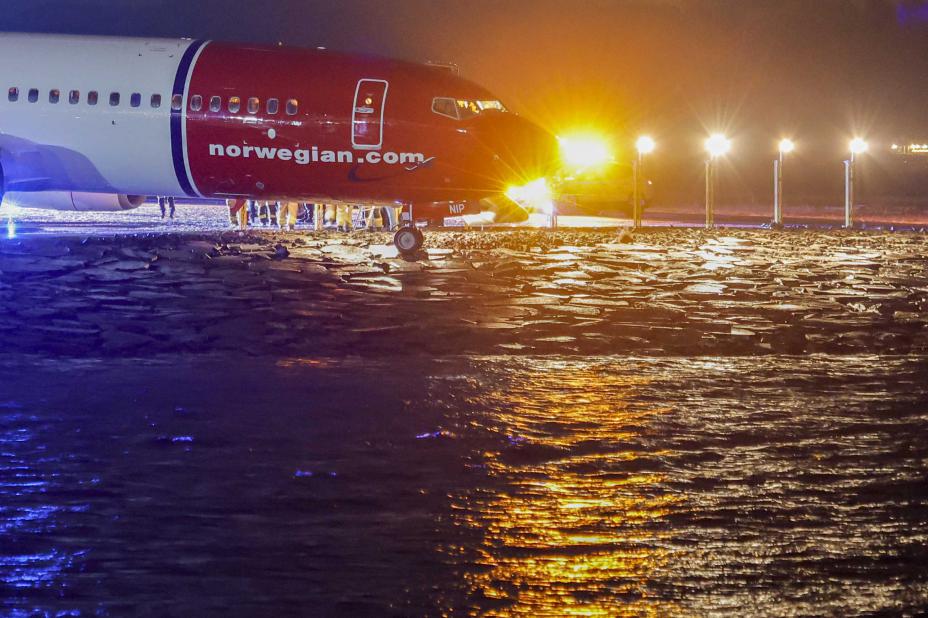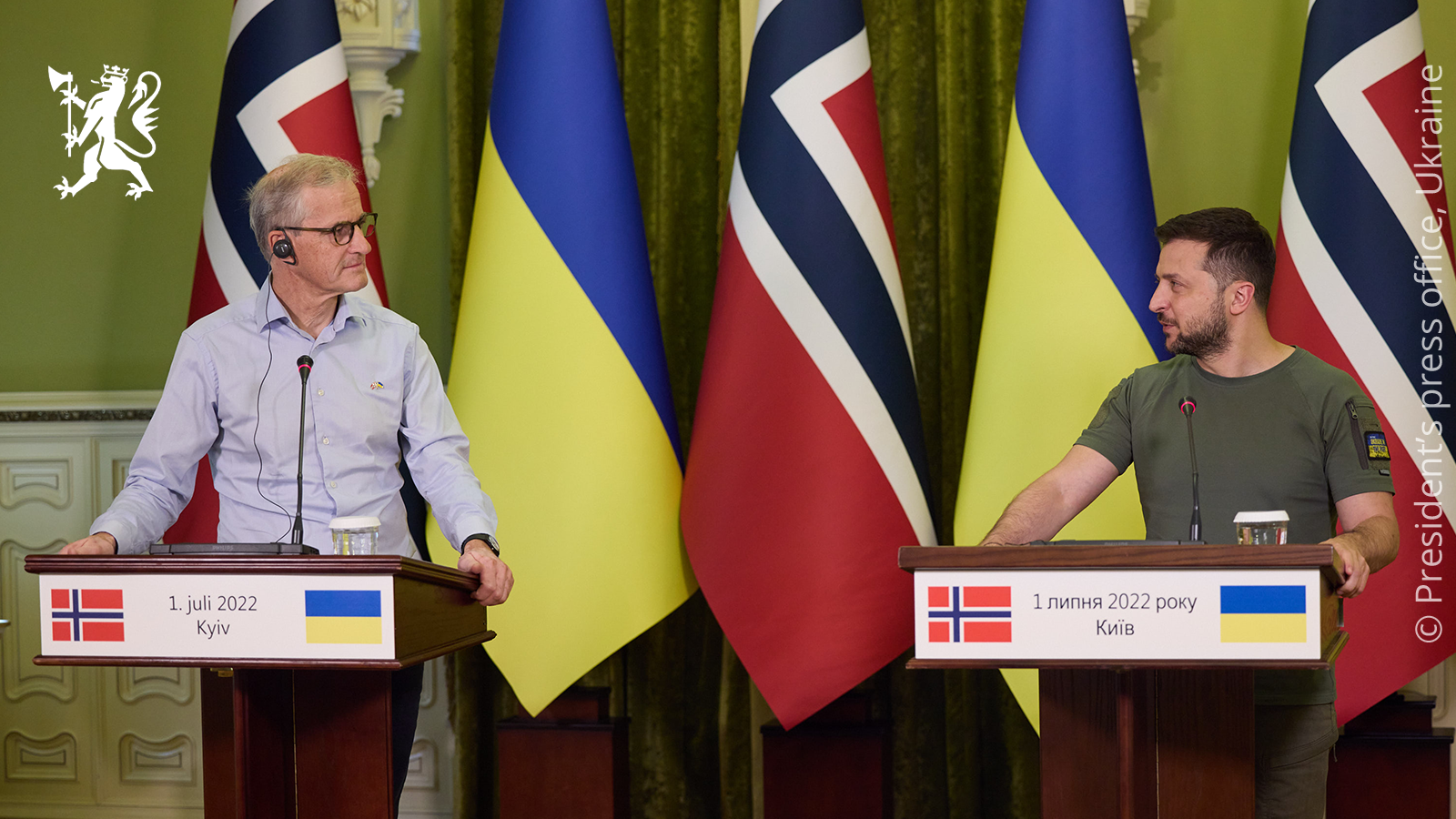Infra
Norway firm on support for Ukraine – Norway’s News in English — www.newsinenglish.no

Norwegian Foreign Minister Espen Barth Eide was in Kyiv this week, to assure the beleaguered Ukrainians “of our support … for many years ahead.” It will be funding many sectors now, aimed at meeting the most crucial needs at a time when the US Congress and some other countries have been waffling.
Ukraine has come under massive Russian attacks in recent weeks, not least on power plants. That’s made support for Ukraine’s energy sector more important than ever, and Norway is handing over millions to repair or rebuild damaged infrastructure.
“Russia’s attacks on several Ukrainian cities have left hundreds of thousands of Ukrainians without power and water,” Eide noted. Local power plants keep getting bombed, “again and again,” he aded, and while it’s expensive to keep rebuilding them (estimated costs have already hit around USD 12 billion), “it’s absolutely necessary.” Norway will not only help repair and rebuild but also coordinate efforts to do so.
Eide believes it’s also important to boost Ukrainian spirits and morale, at a time when the latest war in the Middle East is diverting world attention. He vowed that Norwegian support will continue, not least through the Norwegian government’s “Nansen Program” that’s set aside NOK 75 billion (USD 7.5 billion) in aid to Ukraine over a five-year period.

Ukraine especially needs more ground-to-air defense systems, including Norway’s NASAMS and the US’ Patriot systems. Norway has no Patriot systems to donate but is boosting production of NASAMS, and donating upgraded F16 fighter jets. Concerns remain that all the money, including a new disbursement of NOK 745 million in aid to both Ukraine and some of its neighbouring countries including Moldova, isn’t enough.
“We have very close cooperation (with Ukraine) and I’m glad Norway is among the biggest contributors to Ukraine during this war,” Eide told reporters, “but I’ll be the first to say that none of us is doing enough.” He said donations “will become more strategic,” adding that’s important “not only for Ukraine but also for Norway and all the other democratic countries in Europe and the rest of the world.”
Norway also supports NATO’s plan for a long-term fund amounting to EUR 100 billion for Ukraine, that NATO itself will coordinate. Norway’s contribution to that will amount to around NOK 200 billion.

NATO’s new fund is “a wise and good proposal to make support for Ukraine more sustainable and effective,” said Eivind Vad Pettersson, a state secretary in Norway’s foreign ministry, after the fund was discussed during NATO’s 75th anniversary meetings earlier this month. The fund, meant to pledge funding for many years ahead despite election results in various NATO member countries, is also viewed as part of the process leading to Ukraine’s membership in NATO.
“Moscow must understand that they can’t achieve their goals on the battlefield and they can’t wait until we give up,” Stoltenberg said. Much of today’s financial and defense support for Ukraine is coordinated through a group called Ramstein and led by the US, leaving it vulnerable to the whims of a new US president, whereas Stoltenberg’s “Mission for Ukraine” would be constant and spread responsibility around all NATO members.
Norway and Ukraine, meanwhile, also agreed on their own security agreement during Eide’s visit. It came after a meeting with Ukrainian President Volodomyr Zelensky and ensures “long-term military, political, economic and humanitarian support” for Ukraine. “We will stand with Ukraine as we have since Russia’s brutal, full-scale attack more than two years ago,” Eide said. Ukraine already has similar agreements with other individual NATO members, aimed at maintaining Ukraine as “a demoratic, well-functioning country anchored in the European-Atlantic security fellowship.”
Public support for Ukraine remains high in Norway. “We have the money Ukraine needs,” Knut Anton Mork, an economist and professor emeritus at NTNU, recently wrote in a commentary in newspaper Dagens Næringsliv (DN). Much of the financial support for Ukraine is made possible through Norway’s huge sovereign wealth fund aimed at providing pensions for future generations.

Mork noted, however, that it’s also important that those future generations will still be able to enjoy freedom and democracy, which is what Ukraine is fighting for at present. He called the war in Ukraine “an existential conflict” between liberal democracy and dictatorship.
“If (Russian President Vladimir) Putin’s Russia gets its way in Ukraine, there’s all reason to expect that other European countries will be next in line,” Mork wrote, questioning the value of a pension if European or even Norwegian democracy fails to survive Putin’s attacks. “Republicans in the US Congress think it’s more important to block US President Joe Biden’s support for Ukraine,” he wrote, “than to help a friend in need.
“We can’t sit still and let that happen,” Mork added. “We have the money that’s needed. Let’s use it.” Other Norwegian economists including Steinar Juel have also called for Norway’s sovereign wealth fund (known as the Oil Fund) to invest in more defense contractors and thus “in our security.”
NewsinEnglish.no/Nina Berglund





